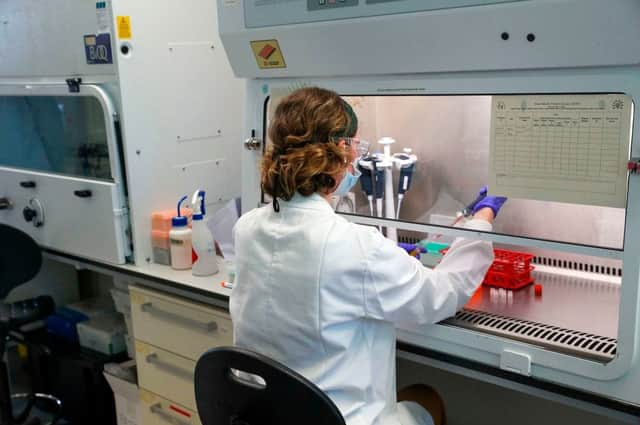The results of the first coronavirus vaccine trials are in - here’s what we know so far


Trials involving over 1,000 people have shown a coronavirus vaccine in development at the University of Oxford could be safe and trigger an immune response.
The injection led the volunteers involved in the tests to produce antibodies and T-cells, essential in fighting the virus.
Advertisement
Hide AdAdvertisement
Hide AdThe early stage trial also found that the vaccine is safe and causes few side effects - the side effects it did cause could be reduced by taking paracetamol, the researchers said.
Co-author Professor Sarah Gilbert, of the University of Oxford, said, "There is still much work to be done before we can confirm if our vaccine will help manage the Covid-19 pandemic, but these early results hold promise.”
Here's everything we know about the trial and its results so far.
How were the trials conducted?
The trial included 1,077 healthy adults aged 18 to 55 years, with no history of Covid-19, and took place in five UK hospitals between 23 April and 21 May 2020.
What are T-cells?
Advertisement
Hide AdAdvertisement
Hide AdT-cells play a central role in the immune response. Their important job of controlling and shaping the immune response comes through their provision of a variety of immune-related functions, such as ‘immune-mediated cell death’.
Certain types of T-cells (also known as ‘killer cells’) are able to directly kill virus-infected cells, and can even ‘recruit’ other cells when mounting an immune response.
Others - affectionately known as “helper cells” - can indirectly kill cells identified as foreign by determining if and how other parts of the immune system respond to threats.
What still needs to be done?
Researchers hope to find a vaccine that is effective after one or two vaccinations, and works in target populations, including older adults and those with other health conditions.
Advertisement
Hide AdAdvertisement
Hide AdIdeally, any vaccine would provide protection for a minimum of six months, but experts warn the current trial is too preliminary to confirm whether the new vaccine meets these requirements.
"As well as continuing to test our vaccine in phase three trials, we need to learn more about the virus - for example, we still do not know how strong an immune response we need to provoke to effectively protect against SARS-CoV-2 infection," said Prof Gilbert.
"If our vaccine is effective, it is a promising option as these types of vaccine can be manufactured at large scale.
"A successful vaccine against SARS-CoV-2 could be used to prevent infection, disease and death in the whole population, with high-risk populations such as hospital workers and older adults prioritised to receive vaccination."
Further trials to confirm whether the vaccine effectively protects against the virus are taking place in the UK, Brazil and South Africa.